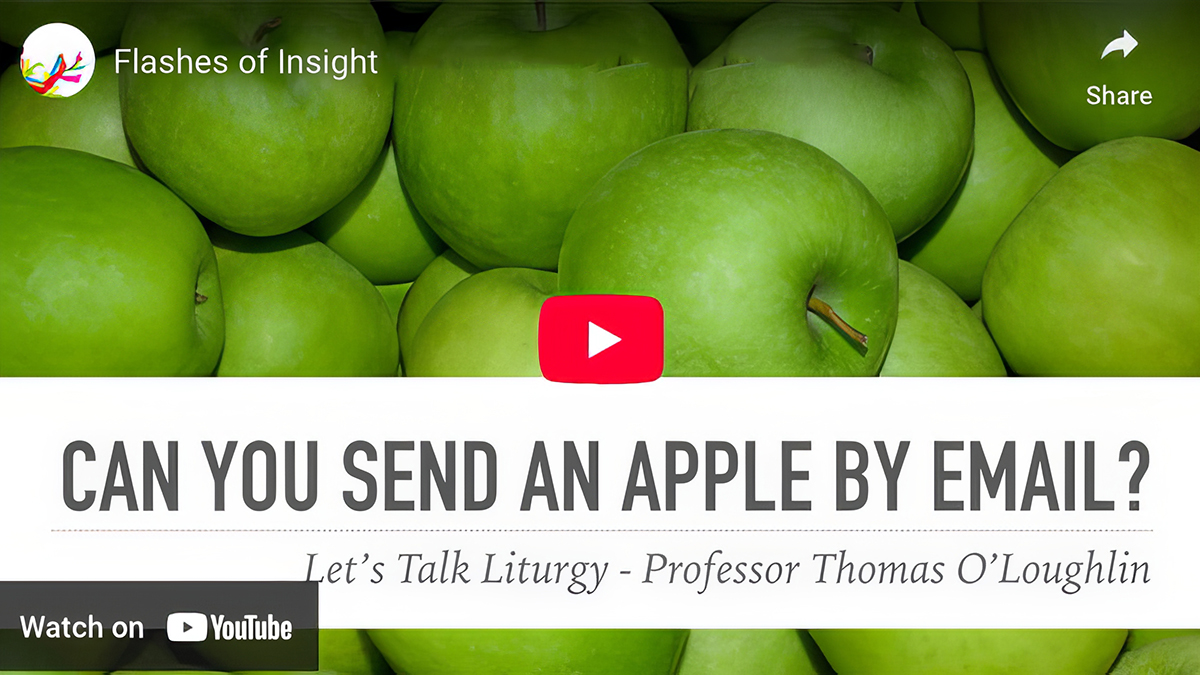The Catholic Church is selling “the Eucharist” and people short and is making a mistake by turning Mass into a YouTube experience.
The comments are from Thomas O’Loughlin, emeritus professor of Historical Theology at the University of Nottingham and Director of Studia Traditionis Theologiae.
“There are some things Zoom and YouTube just won’t do because real experiences are whole human experiences,” O’Loughlin said.
“Can you send an apple by email?” he asked.
He says he will accept doing Mass online when people give up going out to dine with others and when people dine alone at home with pre-packaged food and say it is as rich an experience as it is eating and drinking with friends.
People wanting to have Mass on their TV or computer at home and priests supplying it sounds a warning about the real nature of the community, he said.
“Eucharist makes little sense without a community.”
Challenging the meeting, O’Loughlin posed the question as to whether the Church had stopped being a real community and is being reduced to religious ideology.
He sounded a warning that we may be reducing the Eucharist to just getting communion, almost makes it a commodity!
O’Loughlin said the Church has a wealth of spirituality it can call on during COVID-19 lockdown and questioned why we opted for the “summit” experience.
He says he agrees that Mass is the summit of Christian prayer but suggested perhaps the Church has forgotten the hinterland.
O’Loughlin said that the Liturgy of the Hours, shared prayer, Lectio Divina, prayer together and scripture study we just some of the examples from the Church’s spiritual tradition that respects the characteristics of the liturgy and that are easily adapted to a virtual environment.
“Why did we pick on something so physical such as eating and drinking?” O’Loughlin asked.
Spiritual Communion
Questioned on whether it was appropriate to use the readings of the day and make a “spiritual communion,” O’Loughlin sounded a stern warning.
He observed that spiritual communion came from the time when only priests received communion and was developed by the heretical Jansenists to a point were nuns were not seen as worthy of physically receiving communion.
Spiritual communion “is tied up with notions of unworthiness and impurity” and it is a part of a moral theology we left long ago, he said.
Flashes of Insight
O’Loughlin made the comments in an international conversation hosted by CathNews on Zoom and as part of its “Flashes of Insight” series produced in association with La-Croix International.
Host of the conversation, Dr Joseph Grayland, Director of Liturgy in the Palmerston North Diocese, New Zealand, says the idea for “Let’s Talk Liturgy” came about due to the disruption to worship brought about through the global COVID-19 pandemic.
Grayland says the COVID-19 pandemic has impacted laity and clergy alike.
“For many people, the online Mass, viewed from the living room was sufficient, they didn’t have to go out and it fulfilled the need for Sunday Mass.”
“The priests also liked doing this because it was readily identifiable as part of their mission”.
Labelling online video Mass as a form of clericalism, Grayland says there are real concerns around the passive, observer approach and the personal nature of the “priest’s Mass.”
Flashes of Insight – Let’s Talk Liturgy is, therefore, an opportunity for people to discuss and consider the nature of liturgy in an international context.
Over 80 people from the UK, Australia, the Pacific are involved in the conversation.
The second round of conversations continued last evening and at least one more round is planned.

